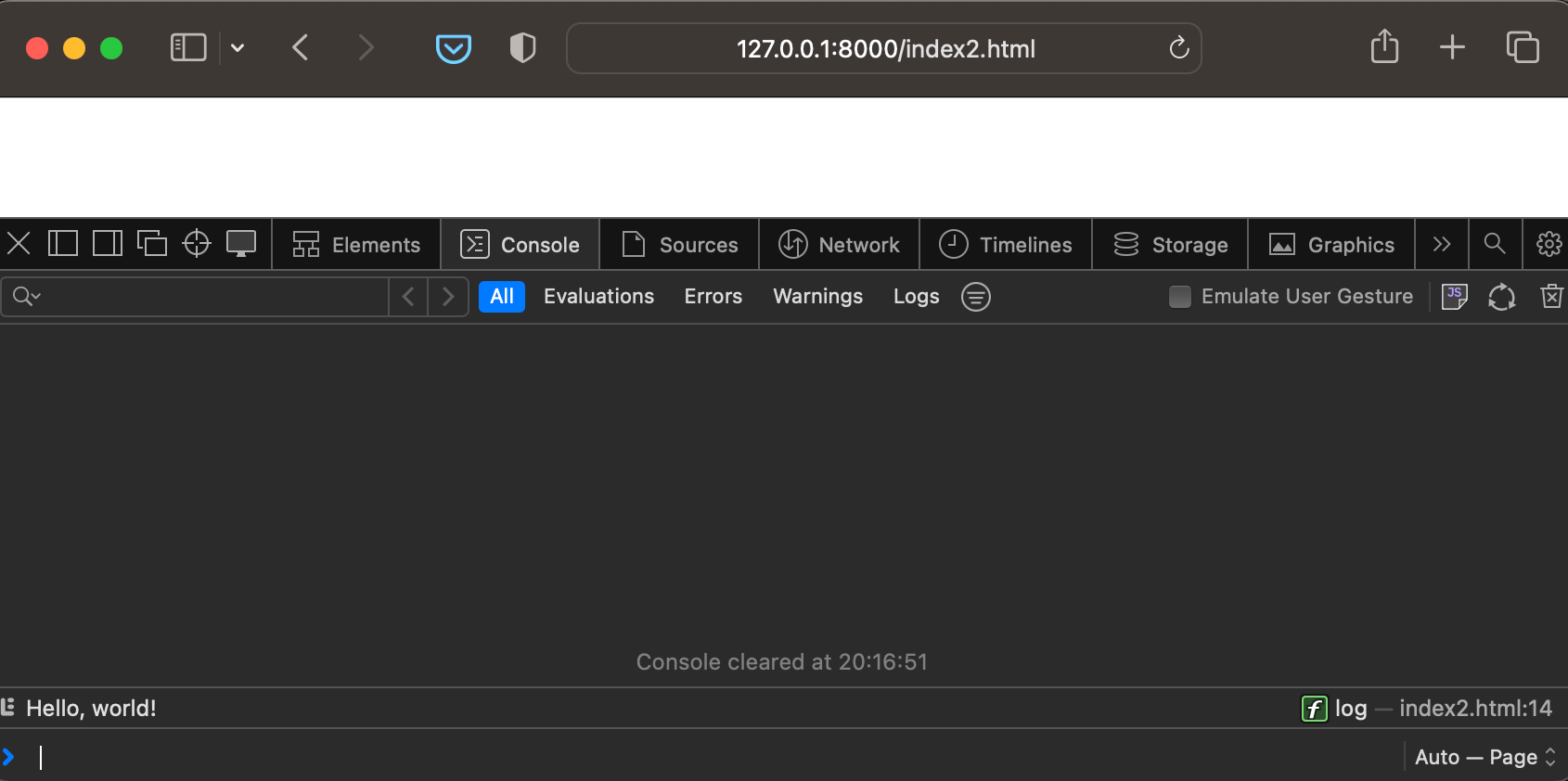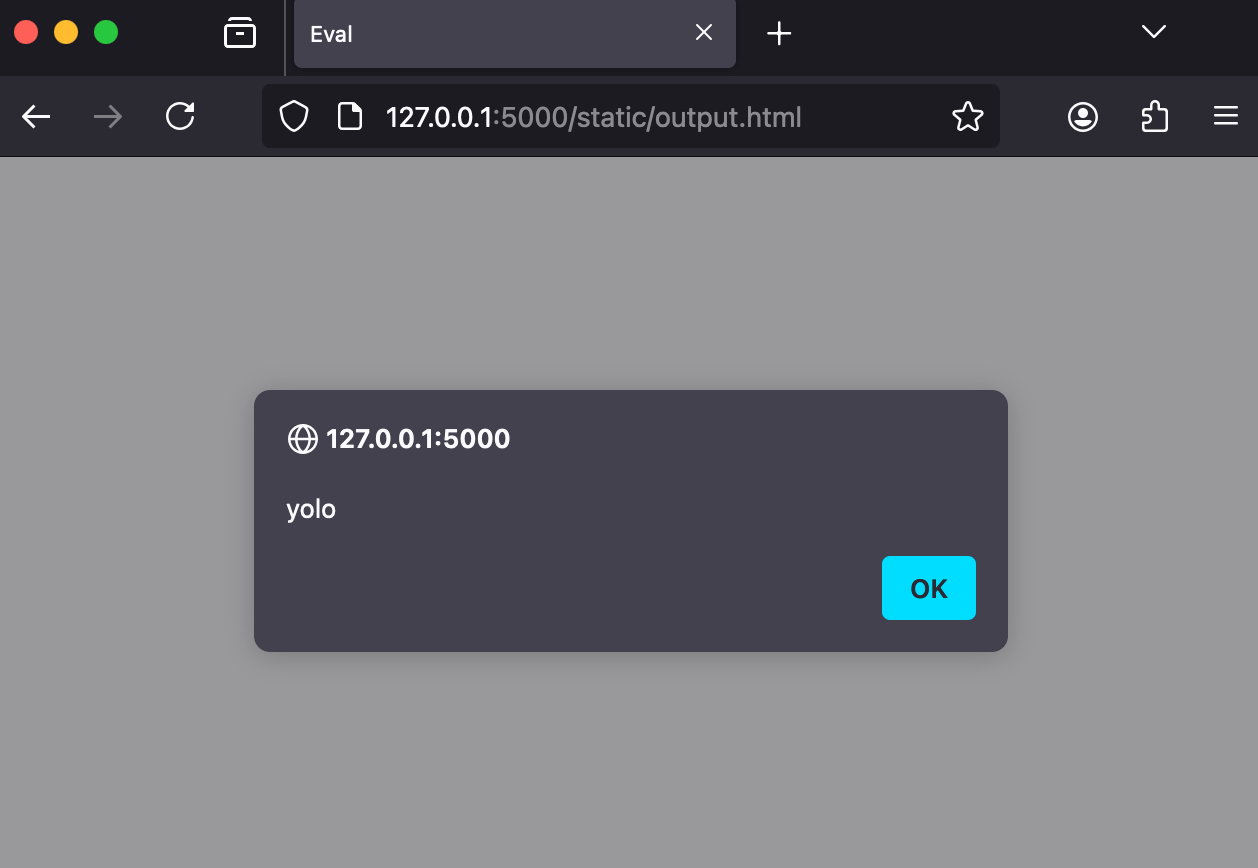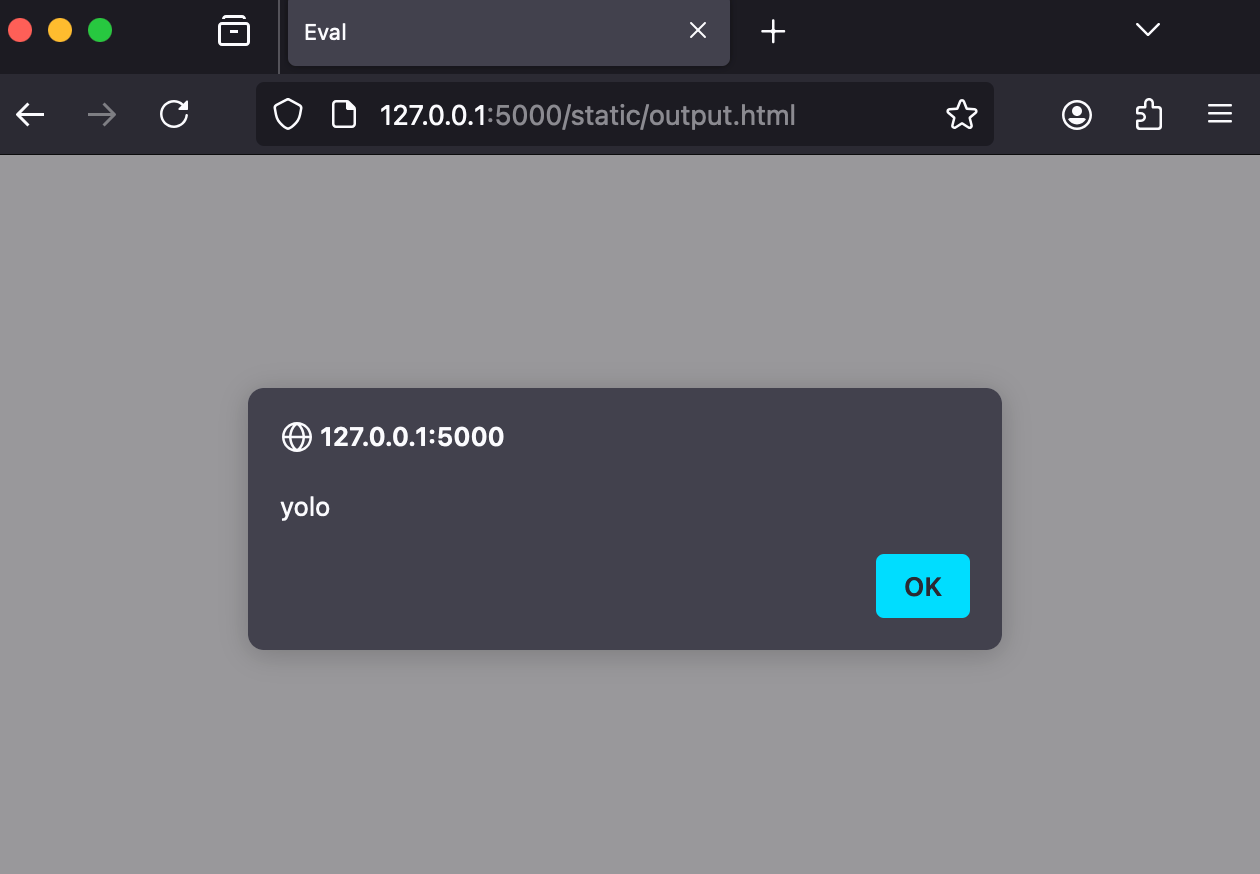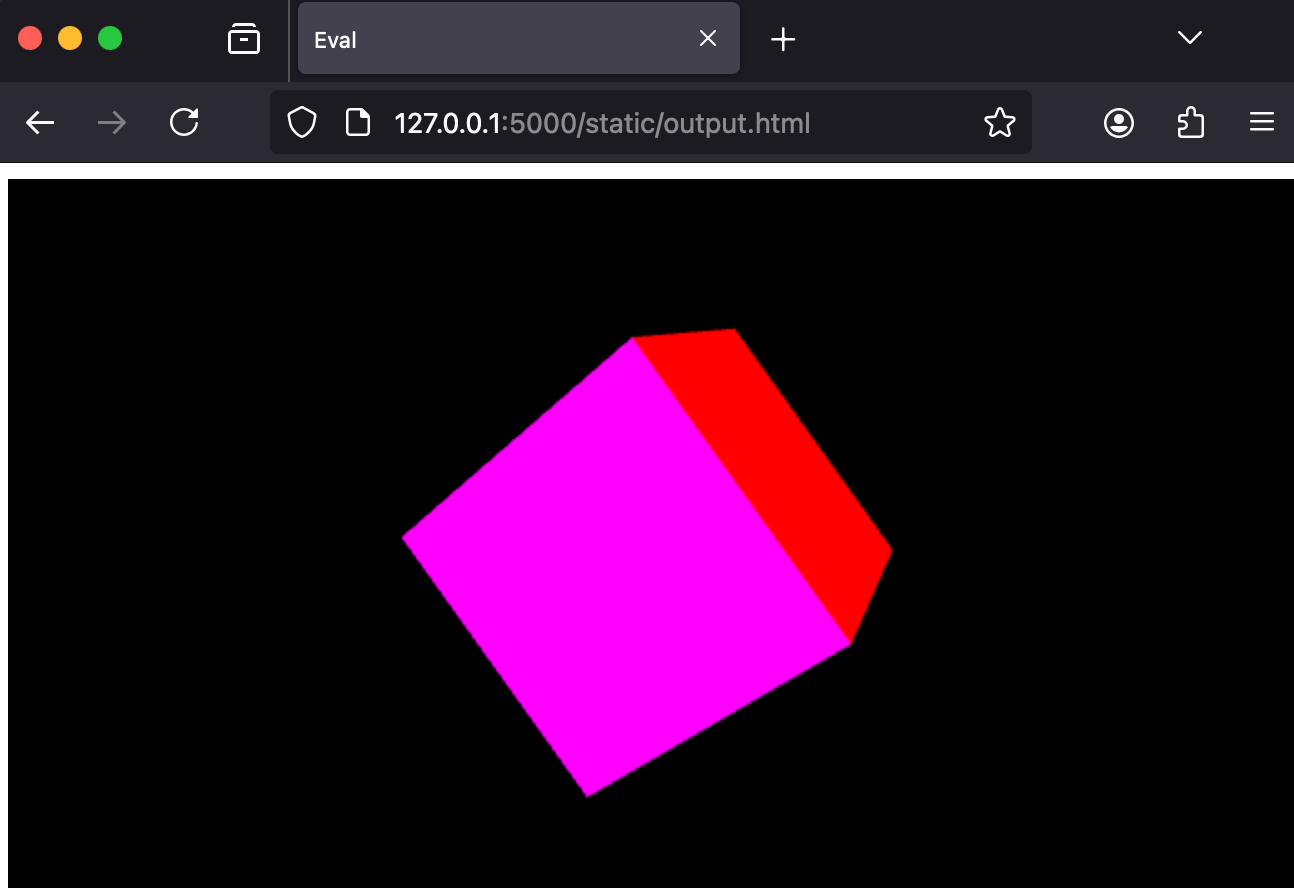Sneaking around with Web Assembly

Introduction
WebAssembly (often abbreviated as WASM) is a binary instruction format designed as a portable compilation target for high-level programming languages like C, C++, and Rust, enabling deployment on the web for client and server applications. Introduced by the World Wide Web Consortium (W3C) in March 2017, WebAssembly aims to offer near-native performance. Alongside its binary format, WebAssembly features a human-readable text format known as WebAssembly Text Format (WAT), which facilitates debugging and learning. Today, WebAssembly enjoys widespread support across all major web browsers, including Chrome, Firefox, Safari, and Edge, making it a robust and versatile choice for developers looking to build high-performance client-side web applications.
Concepts
There are two key concepts to really understand when it comes to Web Assembly:
- Memory: Memory can be shared between WebAssembly (WASM) and JavaScript (JS) by creating a
WebAssembly.Memoryobject. This object can be accessed directly in JS, allowing for efficient data exchange and manipulation. - Functions: There are bi-directional function call capabilities between WASM and JavaScript. We can export functions from WASM and make them callable from JavaScript. Similarly, we can import JavaScript functions to be called and interact with the web browser from within WASM.
Digging into the specific available WASM instruction set (see Appendix of this post for a table) gives you some insight into the capabilities.
WASM Inline Loader
With this in mind, let's create a basic example by making a WebAssembly (WASM) module with one function. We will expose console.log() from JavaScript into WASM and then call it with a string from within the WASM module.
The WebAssembly.instantiate method accepts WASM bytes directly from JavaScript, allowing us to embed WebAssembly directly in our JavaScript code. To demonstrate this, we'll create a minimal WASM module. We'll start with hello.wat to create a function in WASM that logs "Hello World" to our browser console:
(module
(import "env" "log" (func $log (param i32 i32)))
(memory (export "memory") 1)
(data (i32.const 16) "Hello, world!")
(func (export "hello")
i32.const 16
i32.const 13
call $log
)
)
This WebAssembly Text (WAT) code defines a module that imports a JavaScript log function and sets up memory to store the string "Hello, world!". The import statement brings in the log function from the env environment, expecting two 32-bit integer parameters. The module declares and exports a memory segment of one page (64 KB) and initializes it with the string "Hello, world!" starting at offset 16. The hello function, which is exported, pushes the memory offset (16) and the string length (13) onto the stack and calls the imported log function, effectively logging "Hello, world!" to the console.
Next we need to convert WAT to WASM using the Web Assembly Binary Toolkit. On Mac you can install this using:
brew install wabt
We compile it and base64 the output, then send this to clip board so we can copy into our HTML template:
wat2wasm hello.wat
base64 -i hello.wasm | pbcopy
The final HTML:
<!DOCTYPE html>
<html lang="en">
<head>
<meta charset="UTF-8">
<meta name="viewport" content="width=device-width, initial-scale=1.0">
<title>Minimal WASM Example</title>
</head>
<body>
<script>
const b64 = 'AGFzbQEAAAABCQJgAn9/AGAAAAILAQNlbnYDbG9nAAADAgEBBQMBAAEHEgIGbWVtb3J5AgAFaGVsbG8AAQoKAQgAQRBBDRAACwsTAQBBEAsNSGVsbG8sIHdvcmxkIQAUBG5hbWUBBgEAA2xvZwIFAgAAAQA='; // Insert the base64 string from hello_world.wasm.b64 here
const bytes = Uint8Array.from(atob(b64), c => c.charCodeAt(0));
const imports = {
env: {
log: (ptr, len) => console.log(new TextDecoder('utf-8').decode(new Uint8Array(wasm.memory.buffer, ptr, len)))
}
};
let wasm;
WebAssembly.instantiate(bytes.buffer, imports).then(result => {
wasm = result.instance.exports;
wasm.hello();
}).catch(console.error);
</script>
</body>
</html>

WAT Smuggling
I started playing around with Web Assembly by compiling some Rust code to WASM and looking at how I can call JavaScript from WASM and vice versa. Naturally I’m drawn to new any new offensive TTPs that could utilise web assembly. I did some searching around for anything already around and came across some research from some friends at delivr.to (Waves James and Alfie!) https://blog.delivr.to/webassembly-smuggling-it-wasmt-me-648a62547ff4. This blog takes a path of utilising Rust code to smuggle content back into HTML.
This is when I went down two rabbit holes, firstly how to make efficiencies for generated WASM size after compiling Rust and secondly getting my head around what are the available instructions in human readable WAT and therefore its associated WASM (See WAT Syntax).
Now I went on my journey to generate some WAT code that could be used to simply store binary content. The following Python script is what I ended up with:
import argparse
import math
def generate_wat(binary_data,chunk_size=1024):
# Convert binary data to hexadecimal values suitable for WAT and split into chunks
chunks = [binary_data[i:i +chunk_size] for i in range(0, len(binary_data),chunk_size)]
hex_chunks = [''.join(f'\\{byte:02x}' for byte in chunk) for chunk in chunks]
binary_length = len(binary_data)
# Calculate the number of pages needed (1 page = 65536 bytes)
num_pages = math.ceil(binary_length / 65536)
wat_template = f"""
(module
(memory $mem {num_pages})
(export "memory" (memory $mem))
"""
for i, hex_chunk in enumerate(hex_chunks):
wat_template += f"""
(data (i32.const {i *chunk_size}) "{hex_chunk}")
"""
wat_template += f"""
(func $get_binary (result i32)
(i32.const 0)
)
(export "get_binary" (func $get_binary))
(func $get_binary_length (result i32)
(i32.const {binary_length})
)
(export "get_binary_length" (func $get_binary_length))
)
"""
return wat_template
def main():
parser = argparse.ArgumentParser(description='Embed a binary file into a WASM module.')
parser.add_argument('binary_file', type=str, help='The binary file to embed.')
parser.add_argument('output_wat', type=str, help='The output WAT file.')
parser.add_argument('--chunk-size', type=int, default=1024,
help='The size of chunks to split the binary data into.')
args = parser.parse_args()
with open(args.binary_file, 'rb') as bin_file:
binary_data = bin_file.read()
wat_code = generate_wat(binary_data, args.chunk_size)
with open(args.output_wat, 'w') as wat_file:
wat_file.write(wat_code)
print(f"WAT code has been written to {args.output_wat}")
if __name__ == "__main__":
main()
Running it against a binary, in our case a GIF file, should generate some valid WAT code with the binary chunked up and two exported methods, get_binary and get_binary_length.
python3 watsmuggle.py giphy.gif output.wat
WAT code has been written to output.wat
Run the following command to generate the WASM module:
wat2wasm output.wat -o output.wasm
Now we can do the conversion:
wat2wasm output.wat
Sweet! Now we have output.wasm and all we need now is HTML / JavaScript to load our Web Assembly and retrieve our image and render it:
<!DOCTYPE html>
<html lang="en">
<head>
<meta charset="UTF-8">
<meta name="viewport" content="width=device-width, initial-scale=1.0">
<title>Display Image from WASM</title>
</head>
<body>
<h1>Image from WASM Binary</h1>
<img id="wasm-image" alt="Image loaded from WASM binary">
<script>
fetch('output.wasm')
.then(response=>response.arrayBuffer())
.then(bytes=> WebAssembly.instantiate(bytes, {}))
.then(results=> {
const instance =results.instance;
const memory = new Uint8Array(instance.exports.memory.buffer);
const offset = instance.exports.get_binary();
const imageLength = instance.exports.get_binary_length(); // Retrieve the image length
console.log('Memory buffer length:', memory.length);
console.log('Offset:', offset);
console.log('Image length:', imageLength);
// Ensure the image length is within bounds
if (offset + imageLength > memory.length) {
throw new Error('Image length exceeds memory buffer size');
}
const binaryData = memory.slice(offset, offset + imageLength);
// Create a Blob from the binary data and generate a URL
const blob = new Blob([binaryData], { type: 'image/gif' }); // Change the type as per your image format
const url = URL.createObjectURL(blob);
// Set the image src to the generated URL
document.getElementById('wasm-image').src = url;
})
.catch(err=> console.error('Error loading WASM module:',err));
</script>
</body>
</html>
Demo:
https://lab.k7.uk/wasm/gif_wasm.html

But we could also look to obfuscate/encrypt the binary in the Web Assembly too? Let’s try with a basic XOR implementation in WAT/WASM:
import argparse
import math
import os
def xor_encrypt_decrypt(data, key):
key_len = len(key)
return bytes([data[i] ^ key[i % key_len] for i in range(len(data))])
def generate_wat(encrypted_data, key, chunk_size=1024):
# Convert encrypted data to hexadecimal values suitable for WAT and split into chunks
chunks = [encrypted_data[i:i + chunk_size] for i in range(0, len(encrypted_data), chunk_size)]
hex_chunks = [''.join(f'\\{byte:02x}' for byte in chunk) for chunk in chunks]
data_length = len(encrypted_data)
# Calculate the number of pages needed (1 page = 65536 bytes)
num_pages = math.ceil(data_length / 65536)
key_hex = ''.join(f'\\{byte:02x}' for byte in key)
wat_template = f"""
(module
(memory $mem {num_pages})
(export "memory" (memory $mem))
(data (i32.const 0) "{key_hex}")
"""
for i, hex_chunk in enumerate(hex_chunks):
wat_template += f"""
(data (i32.const {i * chunk_size + len(key)}) "{hex_chunk}")
"""
wat_template += f"""
(func $get_binary (result i32)
(call $decrypt (i32.const {len(key)}) (i32.const {len(key)}) (i32.const {data_length}))
(i32.const {len(key)})
)
(export "get_binary" (func $get_binary))
(func $get_binary_length (result i32)
(i32.const {data_length})
)
(export "get_binary_length" (func $get_binary_length))
(func $decrypt (param $dst i32) (param $src i32) (param $len i32)
(local $key_offset i32)
(local $i i32)
(local $key_len i32)
(local $data_byte i32)
(local $key_byte i32)
(local.set $key_offset (i32.const 0))
(local.set $key_len (i32.const {len(key)}))
(local.set $i (i32.const 0))
(block $outer
(loop $inner
(br_if $outer (i32.ge_u (local.get $i) (local.get $len)))
(local.set $data_byte
(i32.load8_u
(i32.add (local.get $src) (local.get $i))
)
)
(local.set $key_byte
(i32.load8_u
(i32.add (local.get $key_offset)
(i32.rem_u (local.get $i) (local.get $key_len)))
)
)
(i32.store8
(i32.add (local.get $dst) (local.get $i))
(i32.xor (local.get $data_byte) (local.get $key_byte))
)
(local.set $i
(i32.add (local.get $i) (i32.const 1))
)
(br $inner)
)
)
)
(export "decrypt" (func $decrypt))
)
"""
return wat_template
def main():
parser = argparse.ArgumentParser(description='Embed an encrypted binary file into a WASM module.')
parser.add_argument('binary_file', type=str, help='The binary file to embed.')
parser.add_argument('output_wat', type=str, help='The output WAT file.')
parser.add_argument('--chunk-size', type=int, default=1024,
help='The size of chunks to split the binary data into.')
args = parser.parse_args()
with open(args.binary_file, 'rb') as bin_file:
binary_data = bin_file.read()
key = os.urandom(16)
encrypted_data = xor_encrypt_decrypt(binary_data, key)
wat_code = generate_wat(encrypted_data, key, args.chunk_size)
with open(args.output_wat, 'w') as wat_file:
wat_file.write(wat_code)
print(f"WAT code has been written to {args.output_wat}")
if __name__ == "__main__":
main()
Demo:
https://lab.k7.uk/wasm/gif_xor_wasm.html

JavaScript Obfuscation using Web Assembly
We’ve already shown how trivially Web Assembly can be used to embed content this makes it harder to statically analyse due to another layer of abstraction in a lesser known place.
Hang on though, what if we expose eval() from JavaScript to WASM - this is one trivial way we could directly execute arbitrary JavaScript from WASM.

I ended up with putting together this PoC to generate the HTML either from either JavaScript code passed on the command line or in a single JS source file:
import argparse
import os
import subprocess
import base64
def generate_wat(js_code):
js_code_length = len(js_code)
js_code_escaped =js_code.replace('\\', '\\\\').replace('\n', '\\n').replace('"', '\\"')
wat_code = f"""
(module
(import "env" "eval_js" (func $eval_js (param i32 i32)))
(memory $0 1)
(export "memory" (memory $0))
(export "hello" (func $hello))
(data (i32.const 16) "{js_code_escaped}")
(func $hello
;; String pointer and length
(i32.store (i32.const 0) (i32.const 16)) ;; Store the string pointer at memory offset 0
(i32.store (i32.const 4) (i32.const {js_code_length})) ;; Store the string length at memory offset 4 ({js_code_length} characters)
;; Call eval_js with the pointer and length
(call $eval_js
(i32.load (i32.const 0)) ;; Load the string pointer
(i32.load (i32.const 4)) ;; Load the string length
)
)
)
"""
return wat_code
def wat_to_wasm(wat_file,wasm_file):
subprocess.run(['wat2wasm',wat_file, '-o',wasm_file], check=True)
def wasm_to_base64(wasm_file):
with open(wasm_file, 'rb') as f:
wasm_binary = f.read()
return base64.b64encode(wasm_binary).decode('utf-8')
def generate_html(base64_wasm,output_html):
html_template = f"""<!DOCTYPE html>
<html lang="en">
<head>
<meta charset="UTF-8">
<meta name="viewport" content="width=device-width, initial-scale=1.0">
<title>Eval</title>
</head>
<body>
<script>
const b64 = '{base64_wasm}';
const bytes = Uint8Array.from(atob(b64), c => c.charCodeAt(0));
const imports = {{
env: {{
eval_js: (ptr, len) => {{
const jsCode = new TextDecoder('utf-8').decode(new Uint8Array(wasm.memory.buffer, ptr, len));
eval(jsCode);
}}
}}
}};
let wasm;
WebAssembly.instantiate(bytes.buffer, imports).then(result => {{
wasm = result.instance.exports;
wasm.hello();
}}).catch(console.error);
</script>
</body>
</html>
"""
with open(output_html, 'w') as f:
f.write(html_template)
def main():
parser = argparse.ArgumentParser(description="Generate WAT, convert to WASM, Base64 encode, and embed in HTML")
parser.add_argument('-c', '--code', type=str, help="JavaScript code as a command line argument")
parser.add_argument('-f', '--file', type=str, help="Path to a file containing JavaScript code")
parser.add_argument('-o', '--output', type=str, default="output.html", help="Output HTML file name")
args = parser.parse_args()
if args.code:
js_code = args.code
elif args.file:
if os.path.exists(args.file):
with open(args.file, 'r') as file:
js_code = file.read()
else:
print(f"Error: File '{args.file}' not found.")
return
else:
print("Error: You must provide either JavaScript code or a source file.")
return
wat_code = generate_wat(js_code)
wat_file = 'output.wat'
wasm_file = 'output.wasm'
with open(wat_file, 'w') as f:
f.write(wat_code)
wat_to_wasm(wat_file, wasm_file)
base64_wasm = wasm_to_base64(wasm_file)
generate_html(base64_wasm, args.output)
print(f"HTML file generated and saved as '{args.output}'")
if __name__ == "__main__":
main()
Let’s give this a try:
% python3 eval.py -h
usage: eval.py [-h] [-c CODE] [-f FILE] [-o OUTPUT]
Generate WAT, convert to WASM, Base64 encode, and embed in HTML
options:
-h, --help show this help message and exit
-c CODE, --code CODE JavaScript code as a command line argument
-f FILE, --file FILE Path to a file containing JavaScript code
-o OUTPUT, --output OUTPUT
Output HTML file name
% python3 eval.py -c "alert('yolo')"
HTML file generated and saved as 'output.html'
Here’s the resulting HTML:
<!DOCTYPE html>
<html lang="en">
<head>
<meta charset="UTF-8">
<meta name="viewport" content="width=device-width, initial-scale=1.0">
<title>Eval</title>
</head>
<body>
<script>
const b64 = 'AGFzbQEAAAABCQJgAn9/AGAAAAIPAQNlbnYHZXZhbF9qcwAAAwIBAQUDAQABBxICBm1lbW9yeQIABWhlbGxvAAEKHgEcAEEAQRA2AgBBBEENNgIAQQAoAgBBBCgCABAACwsTAQBBEAsNYWxlcnQoJ3lvbG8nKQ==';
const bytes = Uint8Array.from(atob(b64), c => c.charCodeAt(0));
const imports = {
env: {
eval_js: (ptr, len) => {
const jsCode = new TextDecoder('utf-8').decode(new Uint8Array(wasm.memory.buffer, ptr, len));
eval(jsCode);
}
}
};
let wasm;
WebAssembly.instantiate(bytes.buffer, imports).then(result => {
wasm = result.instance.exports;
wasm.hello();
}).catch(console.error);
</script>
</body>
</html>

Demo:
https://lab.k7.uk/wasm/eval.html
But is it really obfuscation if we can run strings on the WASM and get:
% strings output.wasm
eval_js
memory
hello
alert('yolo')
It’s time to roll our previous XOR example in. Here’s an updated PoC which XORs the JavaScript:
import argparse
import os
import subprocess
import base64
def xor_encrypt_decrypt(data, key):
key_len = len(key)
return bytes([data[i] ^ key[i % key_len] for i in range(len(data))])
def generate_wat(encrypted_data, key, chunk_size=1024):
# Convert encrypted data to hexadecimal values suitable for WAT and split into chunks
chunks = [encrypted_data[i:i + chunk_size] for i in range(0, len(encrypted_data), chunk_size)]
hex_chunks = [''.join(f'\\{byte:02x}' for byte in chunk) for chunk in chunks]
data_length = len(encrypted_data)
# Calculate the number of pages needed (1 page = 65536 bytes)
num_pages = (data_length + 65535) // 65536
key_hex = ''.join(f'\\{byte:02x}' for byte in key)
wat_template = f"""
(module
(import "env" "eval_js" (func $eval_js (param i32 i32)))
(memory $0 {num_pages})
(export "memory" (memory $0))
(data (i32.const 0) "{key_hex}")
"""
for i, hex_chunk in enumerate(hex_chunks):
wat_template += f"""
(data (i32.const {i * chunk_size + len(key)}) "{hex_chunk}")
"""
wat_template += f"""
(func $hello
(local $key_offset i32)
(local $i i32)
(local $key_len i32)
(local $data_byte i32)
(local $key_byte i32)
(local $len i32)
(local $ptr i32)
;; Initialize variables
(local.set $key_offset (i32.const 0))
(local.set $key_len (i32.const {len(key)}))
(local.set $len (i32.const {data_length}))
(local.set $ptr (i32.const {len(key)}))
(block $outer
(loop $inner
(br_if $outer (i32.ge_u (local.get $i) (local.get $len)))
;; Load the encrypted byte
(local.set $data_byte
(i32.load8_u
(i32.add (local.get $ptr) (local.get $i))
)
)
;; Load the key byte
(local.set $key_byte
(i32.load8_u
(i32.add (local.get $key_offset)
(i32.rem_u (local.get $i) (local.get $key_len)))
)
)
;; XOR decrypt the byte
(i32.store8
(i32.add (local.get $ptr) (local.get $i))
(i32.xor (local.get $data_byte) (local.get $key_byte))
)
;; Increment the index
(local.set $i
(i32.add (local.get $i) (i32.const 1))
)
(br $inner)
)
)
;; Call eval_js with the pointer and length
(call $eval_js
(i32.const {len(key)}) ;; Pointer to the decrypted data
(i32.const {data_length}) ;; Length of the decrypted data
)
)
(export "hello" (func $hello))
)
"""
return wat_template
def wat_to_wasm(wat_file, wasm_file):
subprocess.run(['wat2wasm', wat_file, '-o', wasm_file], check=True)
def wasm_to_base64(wasm_file):
with open(wasm_file, 'rb') as f:
wasm_binary = f.read()
return base64.b64encode(wasm_binary).decode('utf-8')
def generate_html(base64_wasm, output_html):
html_template = f"""<!DOCTYPE html>
<html lang="en">
<head>
<meta charset="UTF-8">
<meta name="viewport" content="width=device-width, initial-scale=1.0">
<title>Eval</title>
</head>
<body>
<script>
const b64 = '{base64_wasm}';
const bytes = Uint8Array.from(atob(b64), c => c.charCodeAt(0));
const imports = {{
env: {{
eval_js: (ptr, len) => {{
const jsCode = new TextDecoder('utf-8').decode(new Uint8Array(wasm.memory.buffer, ptr, len));
eval(jsCode);
}}
}}
}};
let wasm;
WebAssembly.instantiate(bytes.buffer, imports).then(result => {{
wasm = result.instance.exports;
wasm.hello();
}}).catch(console.error);
</script>
</body>
</html>
"""
with open(output_html, 'w') as f:
f.write(html_template)
def main():
parser = argparse.ArgumentParser(description="Generate WAT, convert to WASM, Base64 encode, and embed in HTML")
parser.add_argument('-c', '--code', type=str, help="JavaScript code as a command line argument")
parser.add_argument('-f', '--file', type=str, help="Path to a file containing JavaScript code")
parser.add_argument('-o', '--output', type=str, default="output.html", help="Output HTML file name")
args = parser.parse_args()
if args.code:
js_code = args.code
elif args.file:
if os.path.exists(args.file):
with open(args.file, 'r') as file:
js_code = file.read()
else:
print(f"Error: File '{args.file}' not found.")
return
else:
print("Error: You must provide either JavaScript code or a source file.")
return
key = os.urandom(16)
encrypted_data = xor_encrypt_decrypt(js_code.encode('utf-8'), key)
wat_code = generate_wat(encrypted_data, key)
wat_file = 'output.wat'
wasm_file = 'output.wasm'
with open(wat_file, 'w') as f:
f.write(wat_code)
wat_to_wasm(wat_file, wasm_file)
base64_wasm = wasm_to_base64(wasm_file)
generate_html(base64_wasm, args.output)
print(f"HTML file generated and saved as '{args.output}'")
if __name__ == "__main__":
main()
Let’s generate an XORed version:
% python3 xor_eval.py -c "alert('yolo')"
HTML file generated and saved as 'output.html'
% strings output.wasm
eval_js
memory
hello

Demo:
https://lab.k7.uk/wasm/xor_eval.html
Here’s the HTML:
<!DOCTYPE html>
<html lang="en">
<head>
<meta charset="UTF-8">
<meta name="viewport" content="width=device-width, initial-scale=1.0">
<title>Eval</title>
</head>
<body>
<script>
const b64 = 'AGFzbQEAAAABCQJgAn9/AGAAAAIPAQNlbnYHZXZhbF9qcwAAAwIBAQUDAQABBxICBm1lbW9yeQIABWhlbGxvAAEKVgFUAQd/QQAhAEEQIQJBDSEFQRAhBgJAA0AgASAFTw0BIAYgAWotAAAhAyAAIAEgAnBqLQAAIQQgBiABaiADIARzOgAAIAFBAWohAQwACwtBEEENEAALCygCAEEACxBHawnuTv6N06Lc6sB0boXwAEEQCw0mB2ycOtaqqs2whedd';
const bytes = Uint8Array.from(atob(b64), c => c.charCodeAt(0));
const imports = {
env: {
eval_js: (ptr, len) => {
const jsCode = new TextDecoder('utf-8').decode(new Uint8Array(wasm.memory.buffer, ptr, len));
eval(jsCode);
}
}
};
let wasm;
WebAssembly.instantiate(bytes.buffer, imports).then(result => {
wasm = result.instance.exports;
wasm.hello();
}).catch(console.error);
</script>
</body>
</html>
Let’s test a more substantial JavaScript file:
python3 xor_eval.py -f test.js
HTML file generated and saved as 'output.html'

Demo:
https://lab.k7.uk/wasm/cube.html
Appendix
References
- https://blog.delivr.to/webassembly-smuggling-it-wasmt-me-648a62547ff4
- https://www.fastly.com/blog/hijacking-control-flow-webassembly/
WAT Syntax
| Category | Syntax | Description |
|---|---|---|
| Module Definition | (module ... ) | Defines a WebAssembly module. |
| Import Function | (import "env" "func" (func $func_name (param i32) (result i32))) | Imports a function named func from env namespace, with parameters and return type. |
| Export Function | (export "func_name" (func $func_name)) | Exports a function with the name func_name. |
| Memory | (memory $mem_name 1) | Defines a memory block of 1 page (64KiB). |
| Export Memory | (export "memory" (memory $mem_name)) | Exports the memory block. |
| Data Segment | (data (i32.const 16) "Hello, world!") | Initializes memory at offset 16 with the string "Hello, world!". |
| Function Definition | (func $func_name (param $x i32) (result i32) ... ) | Defines a function with parameters and return type. |
| Local Variables | (local $var_name i32) | Declares a local variable of type i32. |
| Call Function | call $func_name | Calls a function named $func_name. |
| Get Local | local.get $var_name | Pushes the value of a local variable onto the stack. |
| Set Local | local.set $var_name | Pops the top value off the stack and stores it in a local variable. |
| Const Value | i32.const 10 | Pushes a constant value (10) onto the stack. |
| Arithmetic Ops | i32.add, i32.sub, i32.mul, i32.div_s | Performs arithmetic operations on the top values of the stack. |
| Comparison Ops | i32.eq, i32.ne, i32.lt_s, i32.gt_s, i32.le_s, i32.ge_s | Compares the top values of the stack and pushes the result. |
| Control Structures | if (result i32) ... else ... end | Conditional execution. |
| loop $label ... br_if $label ... end | Loop with a conditional break. | |
| Load from Memory | i32.load (i32.const 0) | Loads an i32 value from memory at offset 0. |
| Store to Memory | i32.store (i32.const 0) (i32.const 42) | Stores an i32 value (42) at memory offset 0. |
| Memory Size | (memory.size) | Returns the current size of memory. |
| Memory Grow | (memory.grow (i32.const 1)) | Grows the memory by the specified number of pages. |
| Loop | (loop $label ... br $label ... end) | Defines a loop with a label. |
| Block | (block $label ... end) | Defines a block with a label. |
| Branch | br $label | Unconditionally branches to a label. |
| Branch if | br_if $label | Conditionally branches to a label if the top of the stack is non-zero. |
| Return | return | Returns from the current function. |
| Drop | drop | Pops and discards the top value of the stack. |
| Select | select | Pops the top three values from the stack and pushes either the second or third value based on the first value. |
| Start | (start $func_name) | Specifies a function to be called automatically when the module is instantiated. |
Rust Example
One final example demonstrates how to build a small WASM file from Rust code.
Cargo.toml
[package]
name = "hello_wasm"
version = "0.1.0"
edition = "2018"
[lib]
crate-type = ["cdylib"]
[profile.release]
lto = true
opt-level = "z"
codegen-units = 1
[dependencies]
wasm-bindgen = "0.2"
wee_alloc = "0.4.5"
hello.rs
extern crate wasm_bindgen;
use wasm_bindgen::prelude::*;
#[wasm_bindgen]
pub fn hello_world() {
log("Hello, world!");
}
#[wasm_bindgen]
extern "C" {
#[wasm_bindgen(js_name = log, js_namespace = console)]
fn log(s: &str);
}
Compilation using wasm-pack:
wasm-pack build --target web
cd ./pkg/
base64 -i hello_wasm_bg.wasm | pbcopy
Calling the generated WASM in the same way, although you will have to align the bindings to what is expected for the imported function(s):
<!DOCTYPE html>
<html lang="en">
<head>
<meta charset="UTF-8">
<meta name="viewport" content="width=device-width, initial-scale=1.0">
<title>Rust WASM Example</title>
</head>
<body>
<script>
const b64 = 'AGFzbQEAAAABCQJgAn9/AGAAAAIiAQN3YmcaX193YmdfbG9nX2QwZDU1ZTA5OGVmYmFkMzUAAAMDAgABBQMBABEHGAIGbWVtb3J5AgALaGVsbG9fd29ybGQAAgovAiEAIABC+oScg7LWqZRTNwMIIABC9Kmo3LKD6YKHfzcDAAsLAEGAgMAAQQ0QAAsLowIBAEGAgMAAC5kCSGVsbG8sIHdvcmxkIWNhbGxlZCBgT3B0aW9uOjp1bndyYXAoKWAgb24gYSBgTm9uZWAgdmFsdWUAAAAAAAAAAAEAAAABAAAAL3J1c3QvZGVwcy9kbG1hbGxvYy0wLjIuNi9zcmMvZGxtYWxsb2MucnNhc3NlcnRpb24gZmFpbGVkOiBwc2l6ZSA+PSBzaXplICsgbWluX292ZXJoZWFkAEgAEAApAAAAqAQAAAkAAABhc3NlcnRpb24gZmFpbGVkOiBwc2l6ZSA8PSBzaXplICsgbWF4X292ZXJoZWFkAABIABAAKQAAAK4EAAANAAAAbGlicmFyeS9zdGQvc3JjL3Bhbmlja2luZy5yc/AAEAAcAAAAiwIAAB4Abwlwcm9kdWNlcnMCCGxhbmd1YWdlAQRSdXN0AAxwcm9jZXNzZWQtYnkDBXJ1c3RjHTEuODAuMCAoMDUxNDc4OTU3IDIwMjQtMDctMjEpBndhbHJ1cwYwLjIwLjMMd2FzbS1iaW5kZ2VuBjAuMi45MgAsD3RhcmdldF9mZWF0dXJlcwIrD211dGFibGUtZ2xvYmFscysIc2lnbi1leHQ=';
const bytes = Uint8Array.from(atob(b64), c => c.charCodeAt(0));
const imports = {
env: {},
wbg: {
__wbg_log_d0d55e098efbad35: (ptr, len) => console.log(new TextDecoder('utf-8').decode(wasm.memory.buffer.slice(ptr, ptr + len))) // fix up the generated binding!
}
};
let wasm;
WebAssembly.instantiate(bytes.buffer, imports).then(result => {
wasm = result.instance.exports;
wasm.hello_world();
}).catch(console.error);
</script>
</body>
</html>
